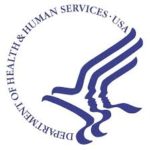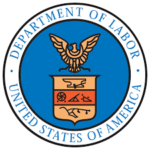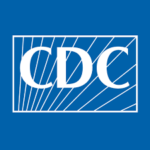The following is the latest health policy news from the federal government December 14-20. Some of the language used below is taken directly from government documents.
Congress
- The House is in recess until January 9. The Senate has delayed its recess to continue negotiations on a possible foreign aid and border policy deal.
- Democrats from the House Ways and Means Committee have published a report on the relationship between the U.S. health care system and climate change. View their report “Health Care and the Climate Crisis: Preparing America’s Health Care Infrastructure.”
 No Surprises Act
No Surprises Act
- The federal government has reopened the Independent Dispute Resolution (IDR) portal to process all dispute types, including previously initiated batched disputes, new batched disputes, and new single disputes involving air ambulance services. It is granting extensions of the applicable IDR deadlines for the initiation of new batched disputes and new single disputes involving air ambulance services, resubmission of disputes determined by certified IDR entities to be improperly batched, and selection or reselection of a certified IDR entity. Learn more from this notice.
- A new final rule from HHS and the departments of Labor and the Treasury finalizes fees for use of the IDR process under the No Surprises Act and certified IDR entity fee ranges. The new fees were set in response to a federal court ruling that vacated part of previous guidance implementing the No Surprises Act. For disputes initiated on or after the effective date of this rule, the certified IDR entity fee range will be $200-$840 for single determinations and $268-$1,173 for batched determinations. For batched determinations exceeding 25 disputed line-items, certified IDR entities may set a fixed fee within the range of $75-$250 for each increment of 25 disputed line-items, beginning with the 26th line item. The final rule explains how the fees were determined and how future fee changes will be presented. Learn more from this CMS news release and from this preview version of the final rule, which is scheduled for publication on December 21. The rule takes effect 30 days after publication.
 Department of Health and Human Services
Department of Health and Human Services
- HHS has taken a series of steps to encourage states to preserve Medicaid and CHIP eligibility for children. It has:
- Published a report providing extensive data on changes in Medicaid and CHIP enrollment nationally, by state, and based on whether states are Medicaid expansion states. Find that report here and a summary of the state-by-state data in this HHS news release.
- Sent an informational memo to state Medicaid programs reminding them about federal eligibility requirements and available flexibilities to promote continuity of coverage of children and youth enrolled in Medicaid and CHIP. Find that memo here.
- Released a new publication addressing transitioning individuals within Medicaid groups and between Medicaid and CHIP at renewal.
- Written to the governors of the nine states with the highest child disenrollment rates urging them to adopt additional federal strategies and flexibilities to help prevent children and their families from losing coverage due to red tape. These nine states account for about 60 percent of the decline in children’s Medicaid and CHIP enrollment from March through September of 2023. Learn more from this for HHS news release, which includes links to the letters to the nine governors.
- Updated its publication “Available State Strategies to Minimize Terminations for Procedural Reasons During the COVID-19 Unwinding Period: Operational Considerations for Implementation.”
- HHS’s OIG has issued an opinion on the use of a preferred hospital network as part of Medicare supplemental health insurance (“Medigap”) policies. Find that opinion here.
- HHS’s OIG has updated its work plan of audits and reviews announced in November. Find the updated work plan here.
- A new paper based on work conducted by a technical expert panel that included researchers from the Agency for Healthcare Research and Quality (AHRQ) addresses the use of health care algorithms and offers the health care community guiding principles to avoid repeating errors that have tainted the use of algorithms in other sectors. The panel developed a conceptual framework to apply a series of guiding principles across an algorithm’s life cycle to address the problems of structural racism and discrimination, centering on health care equity for patients and communities as its overarching goal. Learn more about the project from this HHS news release and from the JAMA Network Open paper “Guiding Principles to Address the Impact of Algorithm Bias on Racial and Ethnic Disparities in Health and Health Care.”
- HHS’s Office of the Assistant Secretary for Planning and Evaluation (ASPE) has published a paper presenting an overview of health information technology adoption and use in long-term and post-acute care settings. This study found that long-term and post-acute care settings have adopted electronic health records (EHRs) to support clinical and business needs but that interoperable exchange of health information is not routine or widely used. Long-term and post-acute-care settings providers use their EHRs but modernization remains slow without focused policy levers. Despite barriers, the report concludes, there are opportunities for emerging policies to support interoperability in long-term and post-acute-care settings. Find the report here.
- HHS’s Health Resources and Services Administration’s (HRSA) Council on Graduate Medical Education will hold two public meetings in 2024: on March 4 and September 12. For information about the council and its work see this HHS notice. Information about the individual meetings, their agendas, meeting locations, and how to participate will eventually be posted here.
- HRSA’s Advisory Committee on Training in Primary Care Medicine and Dentistry will hold two public meetings in 2024: on March 25-26 and August 2. For information about the advisory committee and its work see this HHS notice. Information about the individual meetings, their agendas, meeting locations, and how to participate will eventually be posted here.
- The Provider Relief Fund helped some nursing homes maintain services during the COVID-19 pandemic but other facilities found federal guidance difficult to use, HHS’s Office of the Inspector General (OIG) concludes in a new report. Go here for a summary of the report and a link to the complete report.
- Reporting Period 6 for the Provider Relief Fund opens on January 1, 2024. Go here to learn more about Provider Relief Fund reporting.

- CMS has announced a new effort to improve maternal health and birth outcomes for pregnant and postpartum women and their infants through the creation of a new Transforming Maternal Health Model. This payment and care delivery model will provide up to $17 million over 10 years to as many as 15 states to support participating state Medicaid agencies with the development and implementation of whole-person approaches to pregnancy, childbirth, and postpartum care for women with Medicaid and CHIP coverage by giving selected states additional funding and regulatory flexibility. To help mothers feel supported in their birthing plan, states participating in the model will seek to increase access to a variety of maternal health providers, such as midwives, freestanding birth centers, and doula services. Participating Medicaid agencies will work with hospitals and health systems to help achieve the CMS “Birthing-Friendly” designation, which is the first federal quality designation with a focus on maternal health for hospitals and health systems. Additionally, states will develop health equity plans and foster connections to implement evidence-based practices and lessons such as monitoring pregnant women at home who are diagnosed with conditions that can lead to pregnancy-related complications like hypertension and gestational diabetes. Participating states also will have their maternity care providers screen for and address pregnant women’s health-related social needs – including, but not limited to, challenges such as inadequate access to nutritious food, housing insecurity, or substance use disorder – by connecting mothers to community-based organizations. Learn more about the Transforming Maternal Health Model from this HHS news release; the model’s web page; an FAQ about the model; and this fact sheet about the model. CMS intends to release a Notice of Funding Opportunity for state Medicaid agencies in the spring of 2024, with applications due that summer.
- The Long-Term Care Hospital (LTCH) Provider Preview Reports have been updated and are now available. These reports contain provider performance scores for quality measures that will be published on Care Compare and in the Provider Data Catalog during the March 2024 refresh. Data in the Preview Reports is based on quality assessment data submitted by LTCHs from Quarter 3, 2022 through Quarter 2, 2023 and for the LTCH Change in Mobility measure, Quarter 3, 2021 through Quarter 2, 2023. Providers have until January 16 to review their performance data. Learn more from this CMS notice.
- For calendar years 2023 and 2024, CMS is requiring eligible hospitals and critical access hospitals participating in the Medicare Promoting Interoperability Program to attest to whether they have completed their self-assessment for the Safety Assurance Factors for EHR Resilience (SAFER) Guides measure. The SAFER Guides measure is part of the Protect Patient Health Information objective in the program and consists of nine guides. Learn more about the requirements from this CMS notice.
- CMS has updated the Electronic Clinical Quality Improvement (eCQI) Resource Center. The Eligible Clinician (EC), Eligible Hospital (EH)/Critical Access Hospital (CAH), and Outpatient Quality Reporting (OQR) electronic Clinical Quality Measures (eCQMs) pages now include a new option that enables users to automatically download a zip file containing the HTML file, measure specifications, and technical release notes for each measure from the measure table. For the 2024 reporting and performance periods, the downloadable specifications also include the measure flows for each measure. Find the updated resources here.
- CMS has published resources to guide users through a process of creating an HCQIS Access Roles and Profile (HARP) account, connecting to an organization, and managing their access so they can view, submit, and update their Quality Payment Program (QPP) data. To find these resources go here, scroll down to “Full Resource Library,” and click the link for “Quality Payment Program Access User Guide” for the downloadable zip file.
- CMS has published details of 2024 Qualified Clinical Data Registry (QCDR) measures and corresponding calculations. To find this information go here, scroll down to “Full Resource Library,” and click the link for “2024 Qualified Clinical Data Registry (QCDR) Measure Specification” for the downloadable file.
- CMS has published an overview of the Merit-based Incentive Payment System (MIPS) quality data completeness requirement for the 2023 performance period. To find this overview go here, scroll down to “Full Resource Library,” and click the link for “2033 MIPS Quality Data Completeness Quick Guide” for the downloadable file.
- CMS has published a list of the 2024 Qualified Clinical Data Registries (QCDRs) for the Merit-based Incentive Payment System (MIPS). To find this list go here, scroll down to “Full Resource Library,” and click the link for “2024 Qualified Clinical Data Registries (QCDRs) for the downloadable file.
- CMS has published a list of the 2024 Qualified Registries for the Merit-based Incentive Payment System (MIPS). To find the list go here, scroll down to “Full Resource Library,” and click the link for “2024 Qualified Registries Qualified Posting” for the downloadable file.
- CMS has published a flyer that provides registration and other key information about the upcoming transition webinars for the sunsetting of the CMS Web Interface and the support calls for Shared Savings Program Accountable Care Organizations that are reporting data for the quality performance category through the CMS Web Interface for the 2023 performance period. To find the flyer go here, scroll down to “Full Resource Library,” and click the link for “2023 CMS Web Interface Support Flyer” for the downloadable file.
- CMS has published comprehensive descriptions of the 2024 Medicare Clinical Quality Measures (Medicare CQMs) for the Medicare Shared Savings Program ACOs quality performance category. To find these descriptions go here, scroll down to “Full Resource Library,” and click the link for “2024 Medicare CQMs Specifications and Supporting Documents for Accountable Care Organizations Participating in the Medicare Shared Savings Program” for the downloadable zip file.
- CMS has published the 2024 quality measure specifications for Quality ID 112: Breast Cancer Screening; Quality ID 113: Colorectal Cancer Screening; and Quality ID 128: Preventive Care and Screening: Body Mass Index (BMI) Screening and Follow-Up Plan. These quality measures are only available for the MIPS Value Pathways (MVPs) reporting framework. To find these specifications go here, scroll down to “Full Resource Library,” and click the link for “2024 MVP Quality Measure Specifications for Quality IDs 112 113 and 128 for the downloadable zip file.
- CMS has published a list of the 2024 cross-cutting quality measures that are broadly applicable to all clinicians regardless of their specialty. To find this list go here, scroll down to “Full Resource Library,” and click the link for “2024 Cross-Cutting Quality Measures” for the downloadable file.
HHS Newsletters
- CMS – MLN Connects – December 14
- AHRQ News Now – December 19
- HRSA eNews – December 7
- HRSA – November in Brief
 Department of Labor
Department of Labor
The Department of Labor has issued a proposed rule that would rescind the current rule defining association health plans, which was largely set aside by a federal court. The current rule, established in 2018, was intended to make it easier for employer groups, associations, and small businesses to work together to obtain health insurance that did not meet all the coverage requirements established by the Affordable Care Act. The new regulation, issued as a notice of proposed rulemaking, allows for a reexamination of the criteria for a group or association of employers to sponsor an association health plan. Find the proposed rule here; the deadline for submitting comments is February 20.
Justice Department
The Justice Department and the Federal Trade Commission have jointly issued their 2023 merger guidelines as a final regulation. The updated guidelines describe factors and frameworks the agencies use when reviewing mergers and acquisitions in pursuit of their objectives of transparency, fostering fair, open, and competitive markets, and preserving economic opportunities. The new guidelines could affect hospital and insurer acquisition of physician practices and cross-market hospital and health system mergers. Learn more about the guidelines, which include specific references to the health care industry and hospitals and preventing mergers that would limit competition, from this Justice Department news release and the merger guidelines themselves.
 Centers for Disease Control and Prevention
Centers for Disease Control and Prevention
- The CDC has issued a health advisory to alert providers about low vaccination rates against influenza, COVID-19, and RSV and to warn that this, coupled with continuing increases in national and international respiratory disease activity caused by multiple pathogens, including influenza viruses, COVID-19, and RSV, could lead to more severe disease and increased health care capacity strain in the coming weeks. In addition, the CDC reports a recent increase in cases of multisystem inflammatory syndrome in children (MIS-C). The agency urges providers to counsel patients about vaccinations, testing, and other preventive measures, including covering coughs/sneezes, staying at home when sick, improving ventilation at home or work, and washing hands to protect themselves and others against respiratory diseases. Finally, the health advisory outlines treatment options for these conditions. Learn more from this CDC health alert.
- The CDC has updated its biosafety laboratory guidance for handling and processing mpox specimens. Find the updated guidance here.
Cybersecurity and Infrastructure Security Agency
The Cybersecurity and Infrastructure Security Agency has published the advisory “Enhancing Cyber Resilience: Insights From the CISA Healthcare and Public Health Sector Risk and Vulnerability Assessment,” which presents the agency’s key findings and activities during a risk and vulnerability assessment conducted at a health care and public health organization in early 2023. The advisory also provides network defenders and software manufacturers with recommendations for improving their organizations’ and customers’ cyber posture, potentially reducing the impact of follow-on activity after initial access. Find an overview of the advisory here and the entire report here.
Medicaid and CHIP Payment and Access Commission (MACPAC)
MACPAC met last week in Washington, D.C. Among the subjects on the agenda were Medicaid disproportionate share (Medicaid DSH) allotments to states and what kinds of hospitals should receive such payments; transparency in Medicaid financing, including the use of provider taxes and directed payments; Medicare Advantage, the integration of Medicaid and Medicare services for the dually eligible population, and more. Go here for a summary of the meeting and links to the presentations that constituted the basis for discussion of these and other issues by MACPAC’s commissioners.
Stakeholder Events
MedPAC – January 11-12
The Medicare Payment Advisory Commission (MedPAC) will hold its next public meeting on Thursday, January 11 and Friday, January 12. The meeting’s agenda and information about how to participate virtually have not yet been released but when they are they will be posted here.
CMS – Hospital Price Transparency Webinar – January 17
To help hospitals prepare for meeting new requirements for price transparency, CMS will hold a webinar on Wednesday, January 17 at 2:00 (eastern) to review the new requirements; to present examples of how to encode machine-readable file standard charge information in the template layout CMS will require hospitals to use; and to demonstrate its “GitHub” repository. Go here to register to participate.
MACPAC – January 25-26
The Medicaid and CHIP Payment and Access Commission will hold its next public meeting on Thursday, January 25 and Friday, January 26. The meeting’s agenda and information about how to participate virtually have not yet been released but when they are they will be posted here.
CMS – Health Equity Conference – May 29-30
CMS will hold its second annual CMS Health Equity Conference on Wednesday, May 29 and Thursday, May 30. The free, hybrid conference will be held in person in Bethesda, Maryland and available online for virtual participation and involve health equity leaders from federal and local agencies, health provider organizations, academia, community-based organizations, and others. Conference participants will hear from CMS leadership on recent developments and updates to CMS programs; explore the latest health equity research; discuss promising practices and creative solutions; and collaborate on community engagement strategies. Learn more from the conference web page.
Stakeholder Events: Health Data, Technology, and Interoperability: Certification Program Updates, Algorithm Transparency, and Information Sharing (HTI-1) Final Rule
HHS’s Office of the National Coordinator for Health Information Technology (ONC) will host the following information sessions to explain the Health Data, Technology, and Interoperability: Certification Program Updates, Algorithm Transparency, and Information Sharing (HT1-1) final rule.
HTI-1 Final Rule Overview Information Session #1
Thursday, January 4, 2024 at 1:00 pm (eastern) – register here
HTI-1 Final Rule Insights Condition Information Session
Tuesday, January 9, 2024 at 3:00 pm (eastern) – register here
HTI-1 Final Rule Decision Support Interventions Information Session
Wednesday, January 17, 2024 at 1:00 pm (eastern) register here
HTI-1 Final Rule Information Blocking Information Session
Thursday, January 25, 2024 at 1:00 pm (eastern) – register here
HTI-1 Final Rule Overview with Question & Answer Information Session #2
Thursday, February 1, 2024 at 1:00 pm (eastern) – register here

